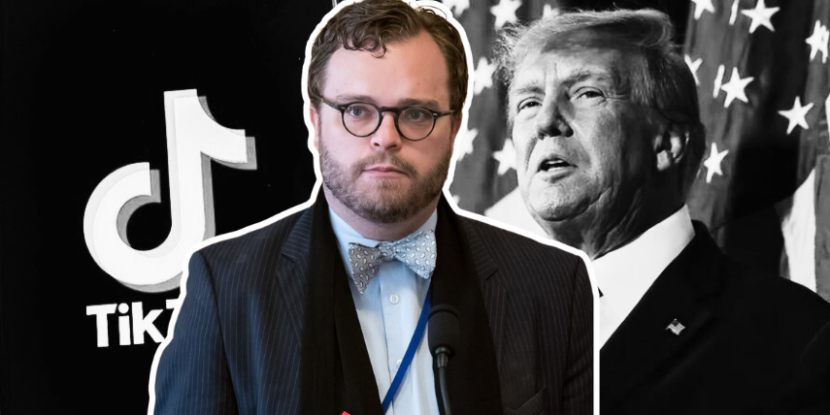In the final days of President Donald Trump’s first term, there was a concerted effort to tackle the problem of TikTok and its ownership by the Chinese technology and entertainment conglomerate ByteDance. Within the administration, there were two leading positions on the question of what to do regarding the social media app and its use by the Chinese Communist government as a tool to collect data and spy on Americans.
One faction — predominantly led by Treasury Secretary Steven T. Mnuchin — sought a path to force ByteDance to divest itself from the TikTok app through a sale to an American company. The other faction — centered around White House economic adviser Peter Navarro — pushed for an outright ban of the popular Chinese-controlled social media app through an executive order.
Former President Donald Trump ultimately opted for a responsible escalation in handling the issue — first working to negotiate a sale of the U.S. TikTok operations to either Microsoft or Oracle. When that fell apart due to ByteDance’s intransigence, Trump moved to ban the app outright through executive order. A federal judge, unfortunately, stayed the order. After the 2020 election, President Joe Biden ultimately abandoned efforts to ban the app.
Preserving Competition.
The legislation introduced by Rep. Mike Gallagher (R-WI) — which would force ByteDance to divest itself from TikTok or face a ban in the U.S. — reflects the Trump Treasury Department’s view on handling the Chinese-owned social platform. HR 7521 — the Protecting Americans from Foreign Adversary Controlled Applications Act — is not an outright ban on the app. Instead, it is a responsible approach to ensuring both market competition and the protection of Americans from Chinese espionage.
As former Treasury Secretary Mnuchin held in 2020, the divestiture route would prevent continued Chinese ownership — ending the accompanying foreign espionage and national security concerns — and preserve competition in the U.S. social media app market.
The legislation is also extremely limited in terms of its scope. It applies only to nations designated by the U.S. government as “foreign adversaries.” These nations are North Korea, the Islamic Republic of Iran, Russia, and China. The National Pulse’s editor-in-chief, Raheem Kassam, walks through the bill’s details in a short video, which can be viewed here.
TikTok on Capitol Hill.
ByteDance was narrowly able to avert both a forced sale of TikTok and a ban on the app in 2020. Since then, the Chinese company has built a massive influence operation on Capitol Hill and in state capitals across the U.S. All the while, TikTok has continued to share the data of American citizens with Beijing — despite its claims to the contrary.
Late last year, The National Pulse reported on this influence operation, detailing how ByteDance increased pressure on Congressional Republicans to oppose efforts to ban the TikTok app. Critical to ByteDance’s influence operation has been the neoliberal advocacy group, the Club for Growth, and the group’s top donor and GOP-mega-donor Jeff Yass. The billionaire is heavily leveraged into TikTok, with $21 billion of his $28 billion net worth invested in the app.
Two of HR 7521’s most outspoken opponents receive significant campaign support from Yass – Rep. Thomas Massie (R-KY) and Sen. Rand Paul (R-KY). Rep. Massie and Sen. Paul falsely claimed that the Gallagher legislation would allow the U.S. government to ban social media platforms like X (formerly Twitter) – or websites the government otherwise disagrees with. The legislation authorizes neither of these actions.
An America First Policy.
Ultimately, the House-passed bill to force Chinese divestment from TikTok is an effort that any America First Republican should support. Our government has a duty to protect the American people — especially young Americans — from the hostile actions of the Chinese Communist state, and HR 7521 does precisely that. It fulfills what we started in former President Donald Trump’s administration almost four years ago.


